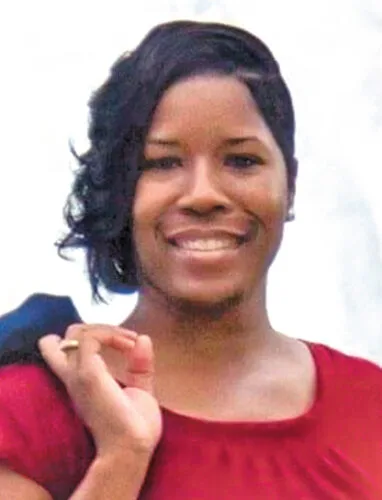
Tanika Williams
Mental health is a prevalent issue impacting people of all races and cultural backgrounds. However, these challenges aren’t a new discovery – mental health has always been an underlying issue in our society, but many people are too afraid to have the conversation. During Black History Month in February, it is a time to shed light on the various ways our cultural backgrounds, beliefs and values can impact the way we view and talk about mental health.
Culture plays a fascinating role in mental health challenges, with people of diverse backgrounds often experiencing the same conditions in different ways. In the case of Black individuals, people are more likely to report persistent symptoms of emotional distress, such as sadness and having feelings of dread toward daily life activities. However, only one in three Black adults will seek treatment.
You may find yourself wondering why this is the case, but there are many barriers to mental health for this group, including:
• Stigma: This is one of the most common reasons people of any culture or background avoid seeking treatment for mental health issues. Not considering race, people worry about how others will perceive them if they have a mental illness. Many feel shame and have fear surrounding the difficult conversation. Black adults, especially older individuals, view mental health conditions as a consequence of personal weakness.
• Socioeconomic status: 10.4% of Black adults have no form of health insurance. If someone cannot afford to obtain the care necessary to help with their mental illness, they will not seek treatment.
• Medical mistrust: There is a significant lack of trust amongst Black Americans in the medical community. This is largely due to past experiences where the Black community has faced barriers preventing equal access to care.
• Misdiagnosis: Many Black individuals describe their mental illness with physical symptoms, like body aches and pains when describing depression. Lack of cultural competency can lead to their symptoms being overlooked or misdiagnosed as something only physical. Additionally, Black individuals are more likely to receive a misdiagnosis of schizophrenia when expressing symptoms related to mood disorders.
So how do we break down these barriers and ensure that we all can obtain the support and treatment we need? The first step is to courageously acknowledge you need help. Once you decide it’s time to seek professional support, there are a couple of things to consider:
• Only 6.2% of psychologists, 5.6% of advanced-practice psychiatric nurses and 12.6% of social workers are members of minority groups. Do not let lack of representation deter you from seeking necessary treatment.
• Research local BIPOC providers in your area. Community and faith organizations in your area may also have a list of available mental health providers, and online medical directories can also help you identify potential providers. Use specific search terms like “Black therapist” or “multicultural counselor” to help narrow your search. You may also discover a good recommendation through a friend or family member.
• A primary care physician that you are already comfortable with can be a great place to start, as they can provide an initial health assessment and help refer you to a multicultural mental health professional.
• Read online reviews and testimonials to determine if a provider is the right fit. This will give you insights into their approach and whether they are best equipped to meet your needs.
• When meeting with a provider for the first time, ask questions to get a snapshot of their level of cultural awareness. Discuss your concerns during your initial meeting to determine if the provider is the right fit. Ask them if they have experience treating people of similar backgrounds or if they have multicultural experience.
• Consider local companies with in-person and telehealth options. This can greatly expand your network of potential providers that best fit your needs.
When embarking on this mental health journey, it is critical to remember that you are not alone. Family, close friends and support groups can all help you feel seen and heard. Do not be afraid to admit that you need help, and to lean on others when necessary. While everyone’s experience is uniquely their own, talking openly about your journey and listening to others’ experiences may help others realize they are struggling too.
Statistics don’t lie – mental health is a global issue, and we need to work together to help break the stigma and ensure every person of every background can get the help they need. Taking care of your health will help to educate and set a positive example for generations to come.
It will take all of us, but together, we can break the silence on mental health.
Tanika Williams is a Psychiatric Mental Health and Adult Gerontology Primary Care Nurse Practitioner for Elite DNA Behavioral Health, a comprehensive mental and behavioral service provider with locations across Florida. For more information, visit EliteDNA.com.


